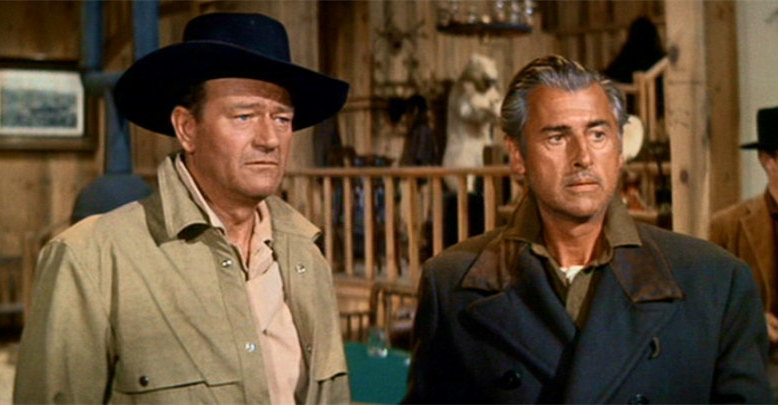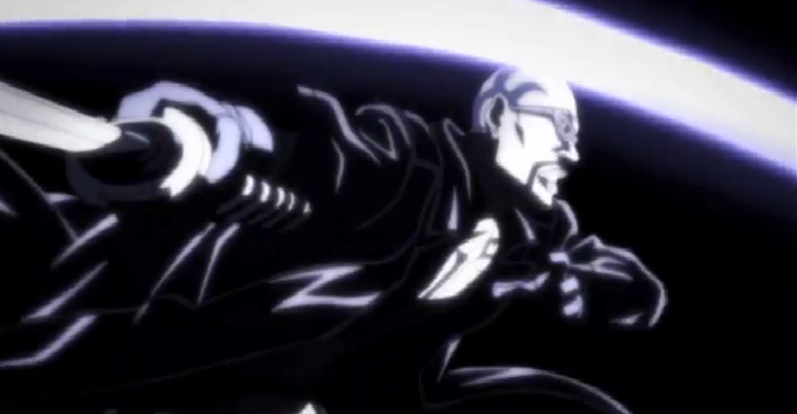Detective film fans can rejoice thanks to the “Charlie Chan Collection” landing on DVD from Warner Bros. Home Entertainment. Perhaps slightly lesser known than Sherlock Holmes, but better known than most modern detectives who are sort of “one and done” in the modern era, Charlie Chan has been a main stay in a well known film genre for a little less than a century. We shouldn’t be surprised to see his films holding their own in the twenty-first century.
This four DVD set brings together four Charlie Chan titles that each make their debut in a remastered collection. Included are “Shadows Over Chinatown,” which stars Sidney Toler in one of his last Chan films, as well as “Docks of New Orleans,” “Shanghai Chest” and “The Golden Eye” starring Roland Winters, who was, incidentally, the last actor to play the detective on film. From some perspectives, seeing one Charlie Chan film might be the same as seeing them all, but there are subtle differences and nuances that distinguish each from its peers. Think of these like the James Bond series: same main character, with various incarnations over the years.
Writer Earl Derr Biggers created Charlie Chan, a fictional Chinese-American sleuth, in a series of printed tales beginning in 1923. As early as 1926, the first of more than 48 Charlie Chan films was put on the silver screen. Actor Warner Oland, born in Sweeden, began a popular run for Fox in 1931 in “Charlie Chan Carries On.” After its success, Fox would produce 15 more Chan films starring Oland, and unsurprisingly, these titles became the most popular in 1930s China. Following Oland’s death, Toler, who was American with Scottish roots, took on the role and starred in 32 Chan films with Fox and Monogram Studios. Winters took over the lead thereafter and held it for 6 installments.
I’ll admit that I knew of the Charlie Chan character on a surface level at best before I watched a few of these titles. I suppose I was born and raised after it had run its course as a household name. I remember watching a Charlie Chan film (which one, of course, escapes me) during a college Ethnic Studies class, and then having a discussion about whether or not the character built upon or pushed up against negative Asian stereotypes. Our class was essentially split, but what I remember thinking most about was how our discussion focused so little on whether or not the film was any good. For its time and place, I thought it was, and I suppose the longevity of the character himself is a sign that others concur.
In 1946, “Shadows Over Chinatown” was released, featuring Chan making his way to San Francisco to investigate a murder case. His trip is taken slightly off course when he encounters a mother trying to find her daughter who’s gone missing. He also meets a young man in search of his missing girlfriend, only to determine that they’re actually looking for the same person. After a little while, a murder gang is uncovered, and they’ve been busily benefiting from the life insurance of the dead. Some casual internet research has unearthed the fact that Toller was in poor health during the film’s production, hence the excessive back and forth between Chan’s chauffeur Birmingham Brown (Mantan Moreland) and his son Jimmy (Victor Sen Yung). Some comic banter abounds, but as with most Chan films, he gets his man at day’s end.
1948 brought “Docks of New Orleans” to the table. Chan is asked to investigate the mysterious demise of a New Orleans chemical company magnate. Shockingly, only he can save the day, and even though the local police think they’ve learned that the death was caused by a heart attack, there are a series of unexplainable deaths that follow. Winters surfaces here in his second Chan role, as does his supporting entourage of Tommy and Birmingham. The setting is a fun one, and the antics end up leading to a creative conclusion.
Also from 1948 is “Shanghai Chest,” which brings Chan back to San Francisco for the second time in this collection. This time around, three murders take place – a judge, the District Attorney and a juror. A deceased man’s fingerprints are found at all three murder sites, but what are the odds that a dead guy is responsible for serial killings? Chan digs and digs to unearth the truth, this time with some good natured laughs and awkwardly tense moments to boot.
The collection’s final film is “The Golden Eye,” not to be confused with the James Bond title. An Arizona gold mine owner summons Chan’s help in the very beginning. We learn that despite the mine being more profitable now than ever before, its owner is terrified and fears for his life. Some clever sleuthing reveals that the mine is a holding spot for Mexican gold that is being smuggled into the United States and sold at a huge profit. A few gunshots and deaths later reveal that a former colleague is the perpetrator, leaving Chan with the responsibility of enforcing justice.
These films were made in a simpler time, and they relied on different elements to be effective. We don’t see massive explosions or special effects, but we do see some traditional techniques used as it relates to music, lighting, mood and atmosphere. We don’t see buckets of blood and gore, but we do see surprisingly deeply developed characters who can wiggle their way into and out of some tricky scenarios. The Charlie Chan Collection takes us back to a simpler time, and it’s a welcome journey.
This said, these aren’t earth shattering films. They remain best known for the title character above all else. These titles didn’t win Oscars and aren’t featured on critics’ lists for the best titles from the 1940s. Essentially, we’re given the same film four times, with setting and context being amended, and frankly, it showed. I should also note that these are extremely methodical and predictable (I figured out how two of the four were going to end by the halfway point in the run time). At less than 70 minutes each, audiences probably aren’t digging for specific depth, but you can’t help but wonder what a little more storyline detail may have done for each title’s overall experience.
No doubt these films will be highly sought out by Charlie Chan fans, and they are well enough defined to please said audiences. I’m not, however, convinced they’d ever be good enough to woo new fans to the genre or the character. They strike me as titles that weren’t made with gigantic budgets or unlimited resources, but instead too an existing character and tried to fit him and his entourage into many varied contexts. It works, but only at the surface.
Video:
Each title has apparently been remastered, yet the wear and tear from many decades still takes its toll. I wasn’t impressed with the original screen aspect ratio, either. I had to play with my HDTV’s frame and coloration to try and maximize the viewing experience. Grain is pretty evident, and bright scenes are often masked by darker ones. The transfers are unfortunately below par, and disappoint in a variety of ways.
Audio:
English mono soundtracks accompany each film. They sound about as good as they look, I’m sorry to report. It’s clear these were not high atop the Warner Bros. priority list, and I can’t say I blame them. Kicking your volume up a notch or two will help to reign in the sound, but the scripts here aren’t all that great or significant to begin with. Subtitles are English, French and Spanish.
Extras:
None.
A Final Word:
I’m disappointed in this release for several reasons: the films aren’t that spectacular, the investment from Warner Bros. is less spectacular and the titles generate a hollow feeling about a character who is better known than this approach gives him credit for. Probably a good investment for fans, but others will come up wanting.


